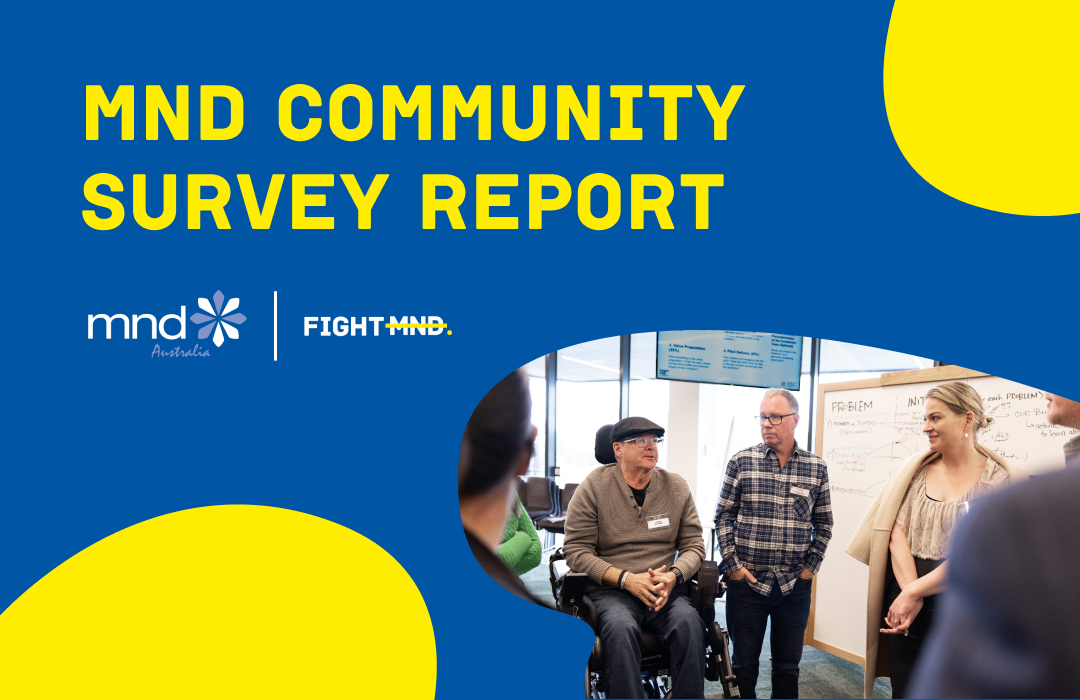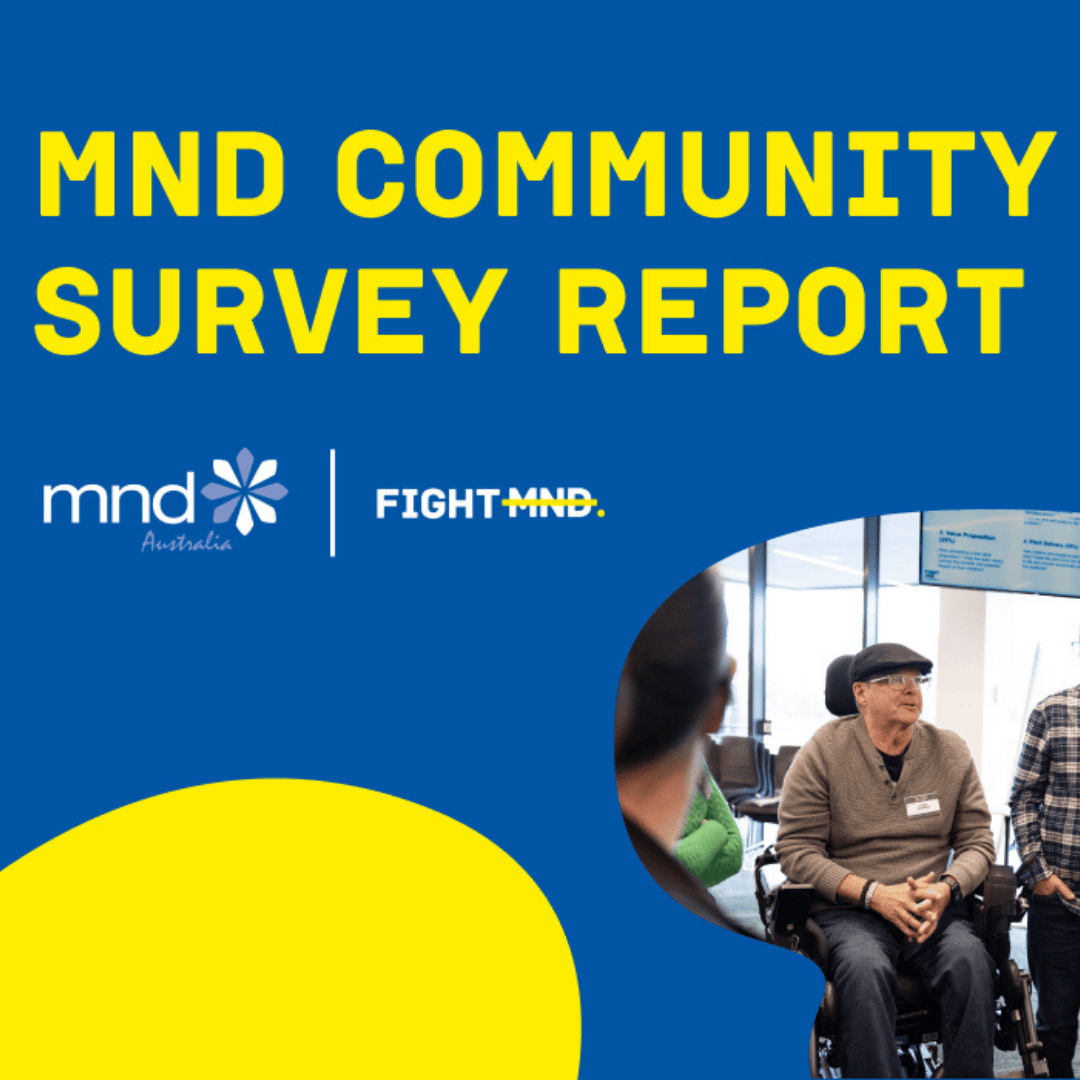In 2025, FightMND and MND Australia surveyed nearly 500 Australians affected by motor neurone disease (MND) to better understand lived experience and inform national care and research initiatives.


The 2025 MND Community Survey was developed by FightMND in partnership with MND Australia to systematically capture the experiences, perspectives and priorities of Australians affected by MND.
The survey was designed to provide a comprehensive, evidence-based understanding of:
- The lived experience of people at different stages of MND.
- Barriers to accessing care, support and services.
- Challenges affecting quality of life.
- Research priorities as identified by the MND community.
- Opportunities to inform national advocacy, policy and funding strategies.
By collecting and analysing these insights, the survey ensures that initiatives in care, research and advocacy are informed by robust, community-driven evidence. This helps strengthen national efforts working to improve outcomes for people affected by MND and their families.
Survey participants
The survey reflects a broad cross-section of the MND community, including:
- People currently living with MND.
- Current and former carers.
- Individuals who are asymptomatic but carry a known MND-related gene.
Through national reach supported by MND Australia’s network, the survey captured perspectives from across Australia, spanning regions, care settings and life stages.
Key findings
Living with MND
Participants described the daily physical, emotional and practical challenges of living with MND. This included symptom management, fatigue and navigating complex care systems. Access to specialist services, timely support and coordinated care were recurring themes.
Carer experiences
Carers highlighted the significant impact of MND on their wellbeing, finances and mental health. Many reported feeling under-supported, particularly during care transitions and following diagnosis. These findings echo the priorities identified by MND Australia and its state-based members.
Gene Carrier perspectives
For individuals aware of their genetic risk, uncertainty and limited tailored support were key challenges. The survey emphasised the need for accessible information, emotional support and research opportunities specific to this group.
Research and advocacy priorities
Survey participants strongly supported collaboration across organisations, including FightMND and MND Australia, to advance:
- Effective treatments and cures.
- Improved access to clinical trials.
- Standardised care and service coordination.
Equitable access to support, regardless of postcode.
How Findings Will Be Used
The 2025 MND Community Survey results provide actionable insight to FightMND and MND Australia, guiding:
- National advocacy efforts.
- Evidence-based policy discussions.
- Investment in research, care and support initiatives.
- Alignment across the MND sector for improved outcomes.
By grounding initiatives in lived experience, both organisations aim to deliver stronger, targeted, and practical solutions for the MND community.
Download the Report
The 2025 MND Community Survey Report offers detailed analysis, data visualisations and comprehensive findings.
Acknowledging the Community
We thank all survey participants for sharing their experiences. Your insights enable FightMND and MND Australia to advocate effectively and drive meaningful change for Australians living with MND.
Together, we continue to fight the Beast that is MND.